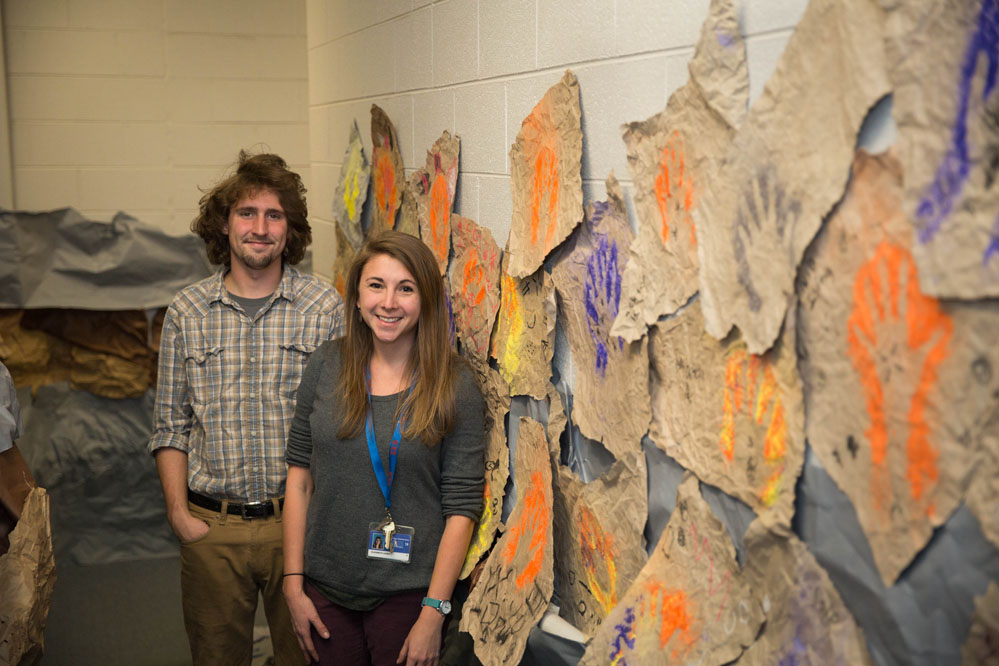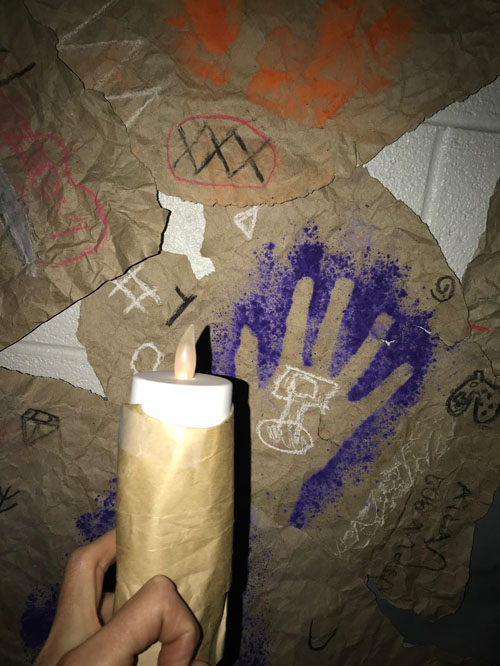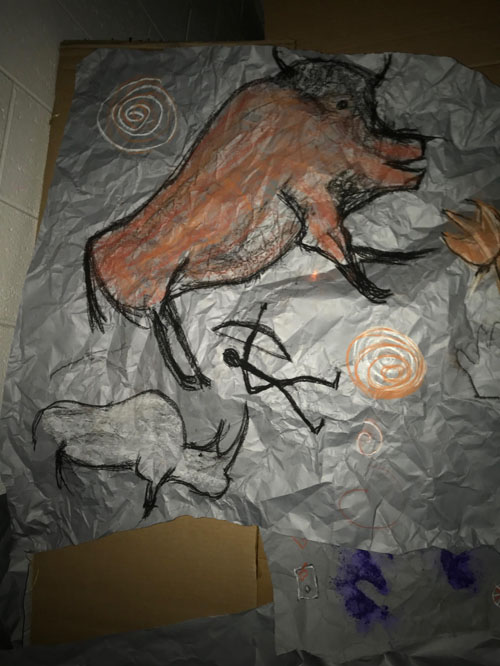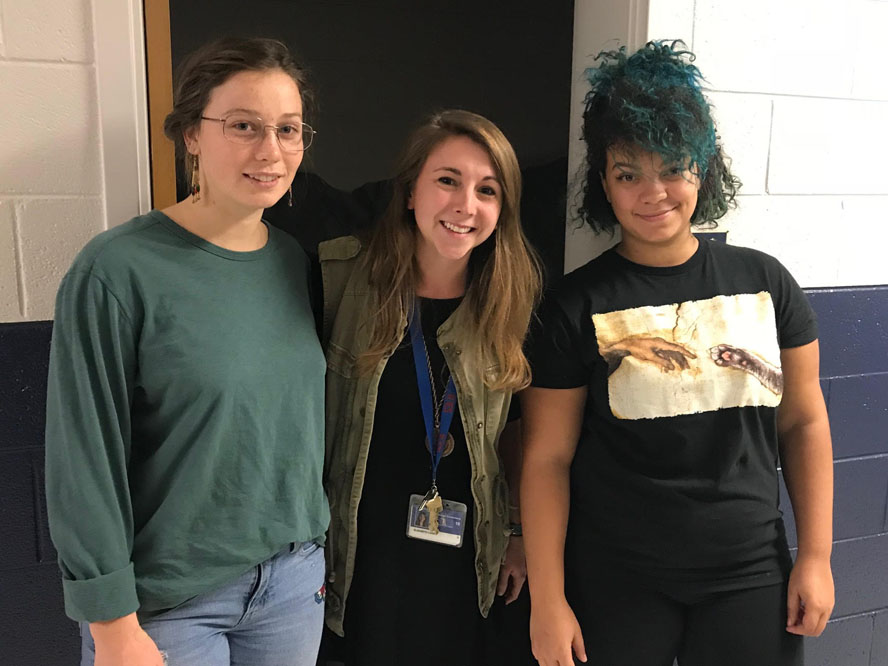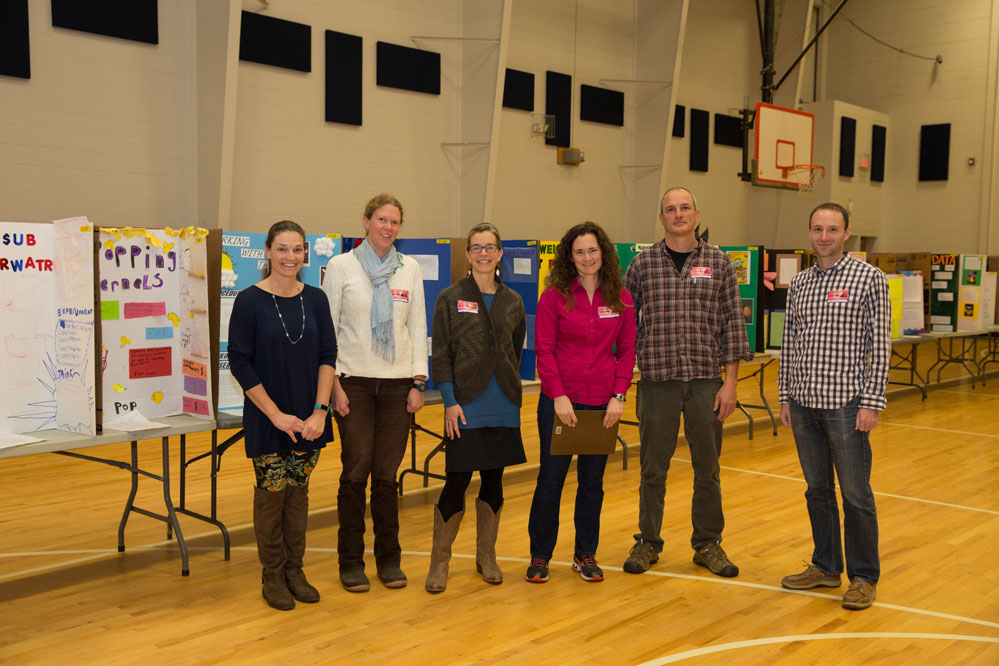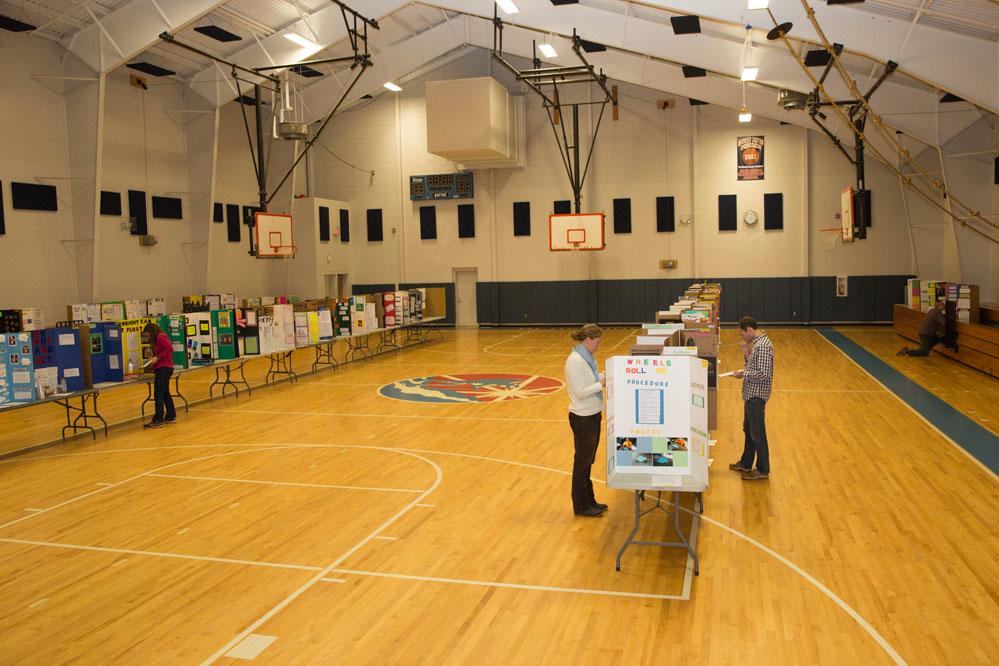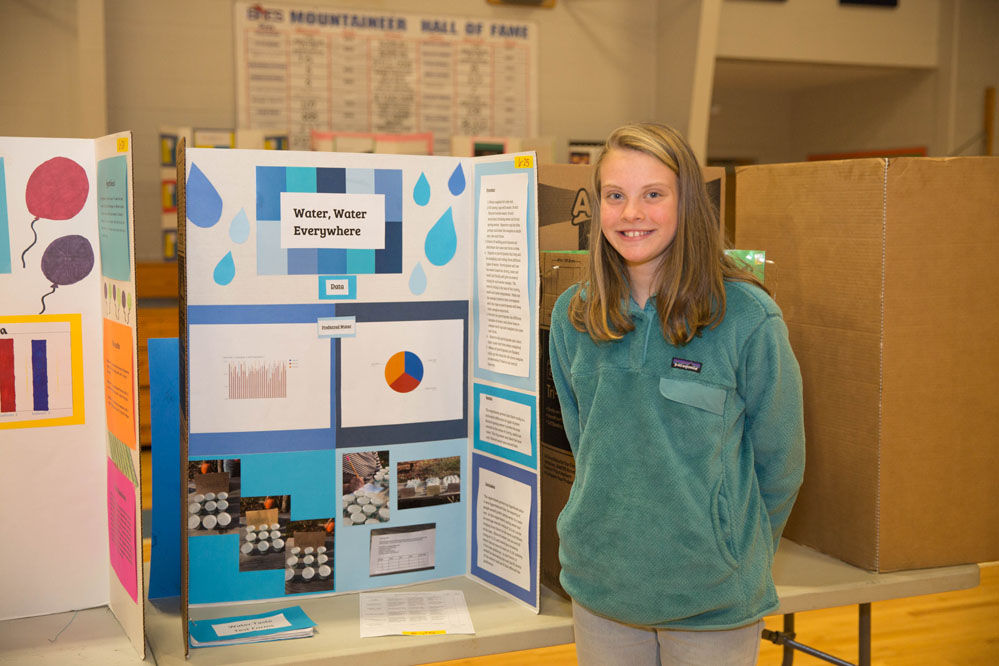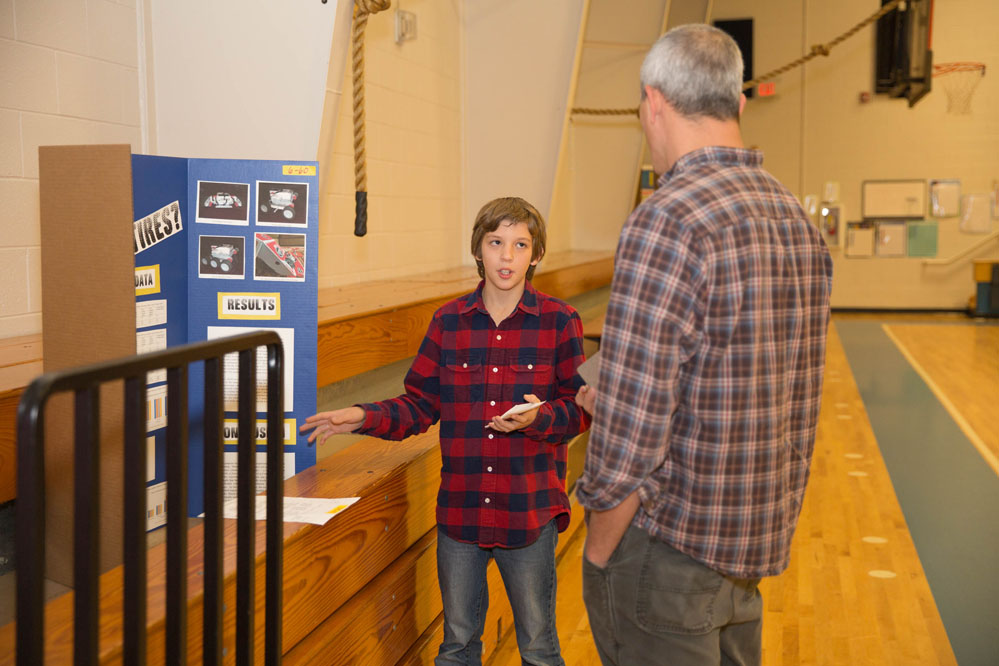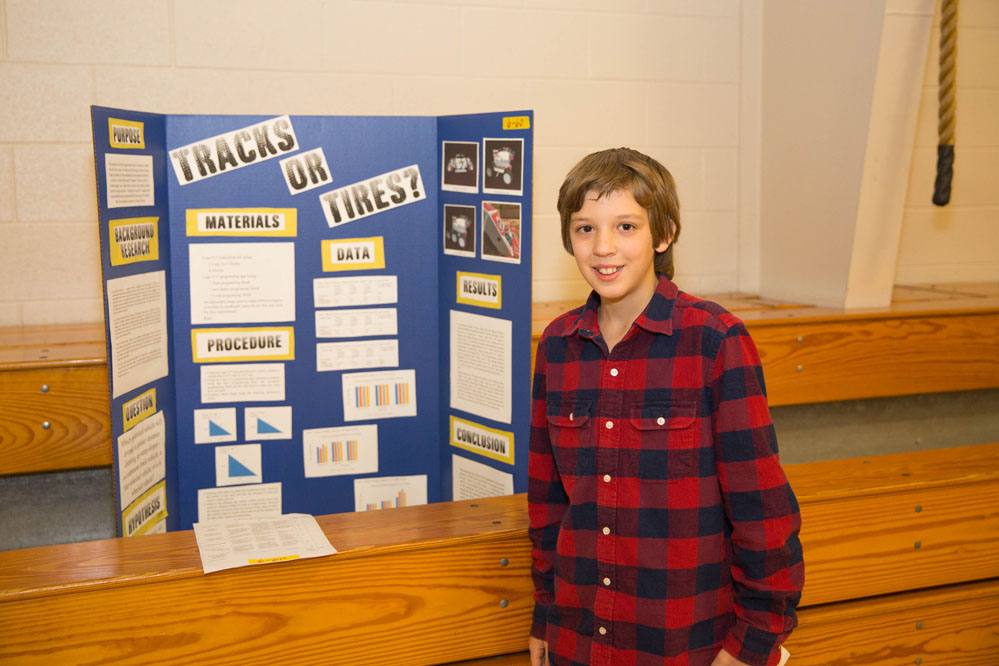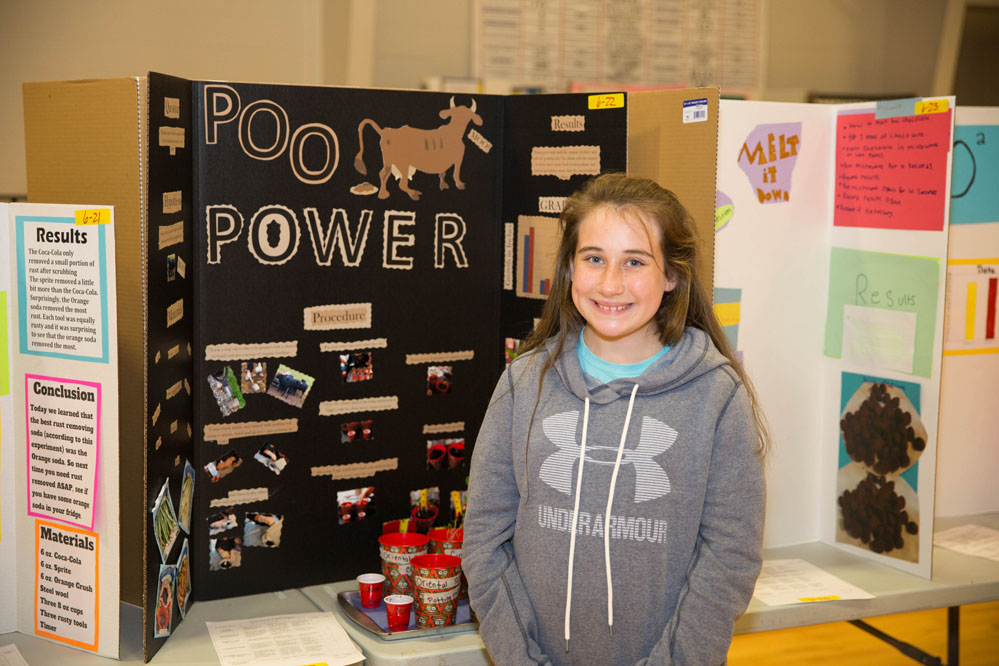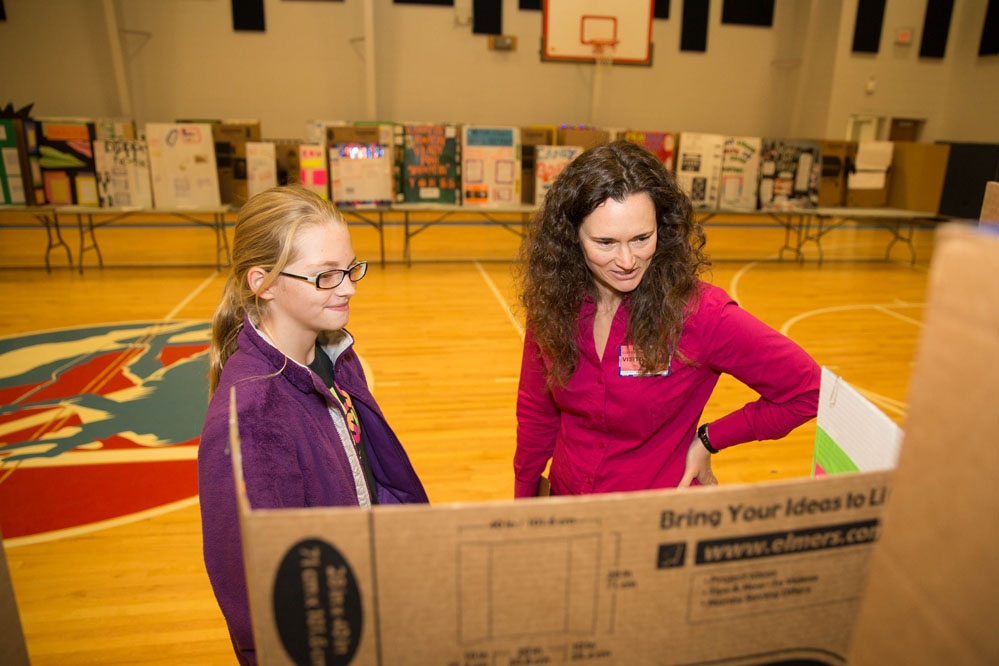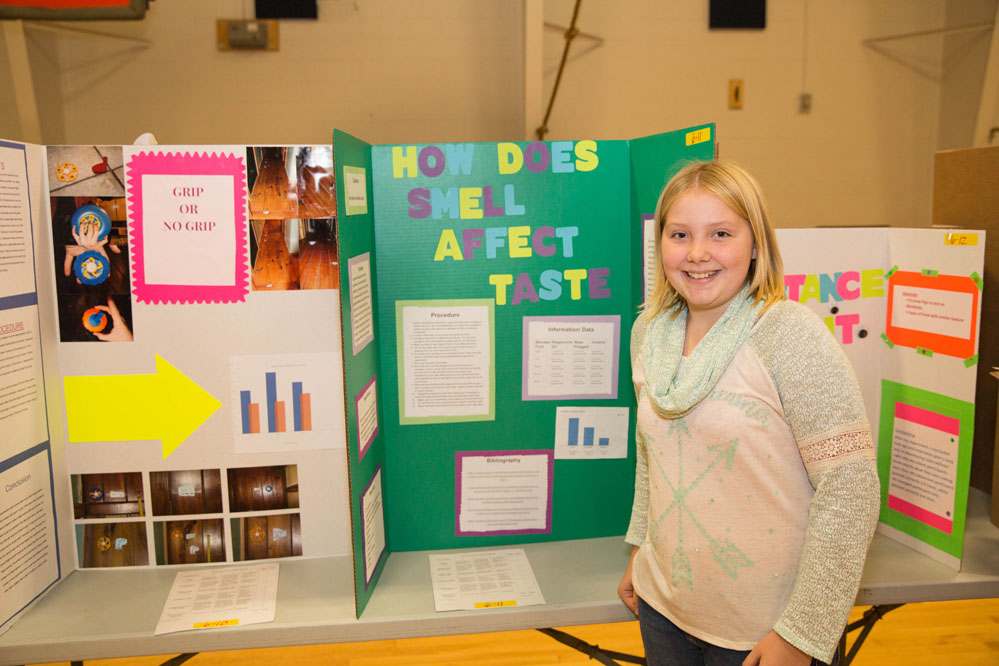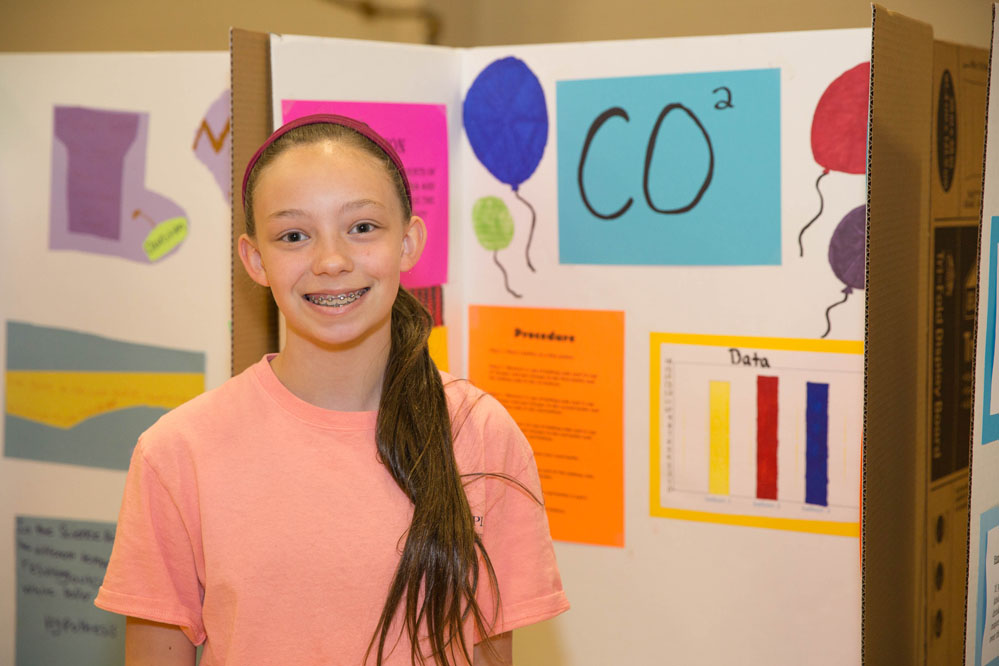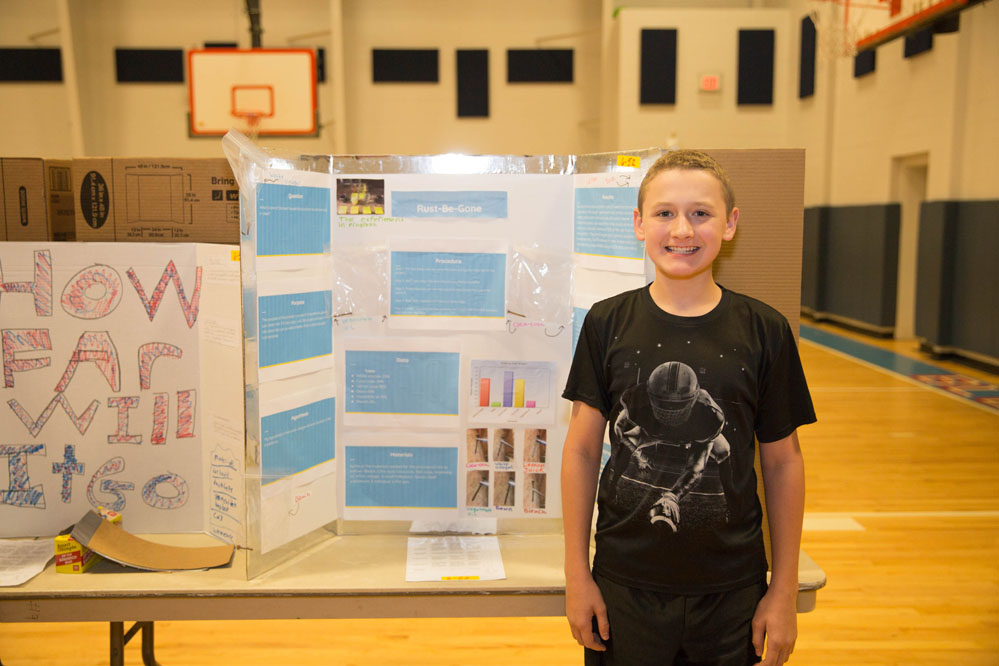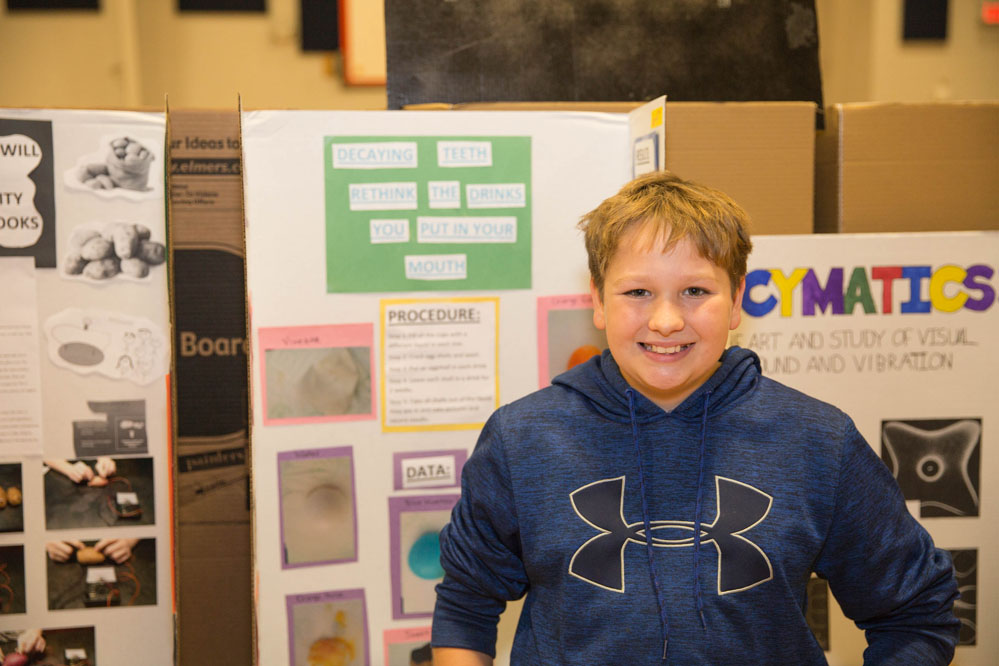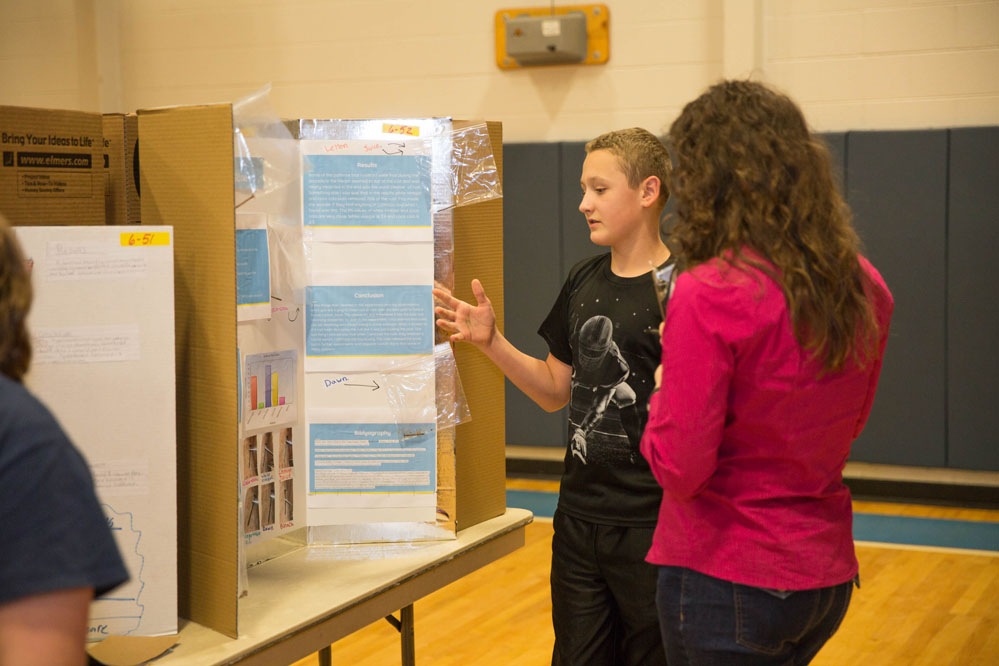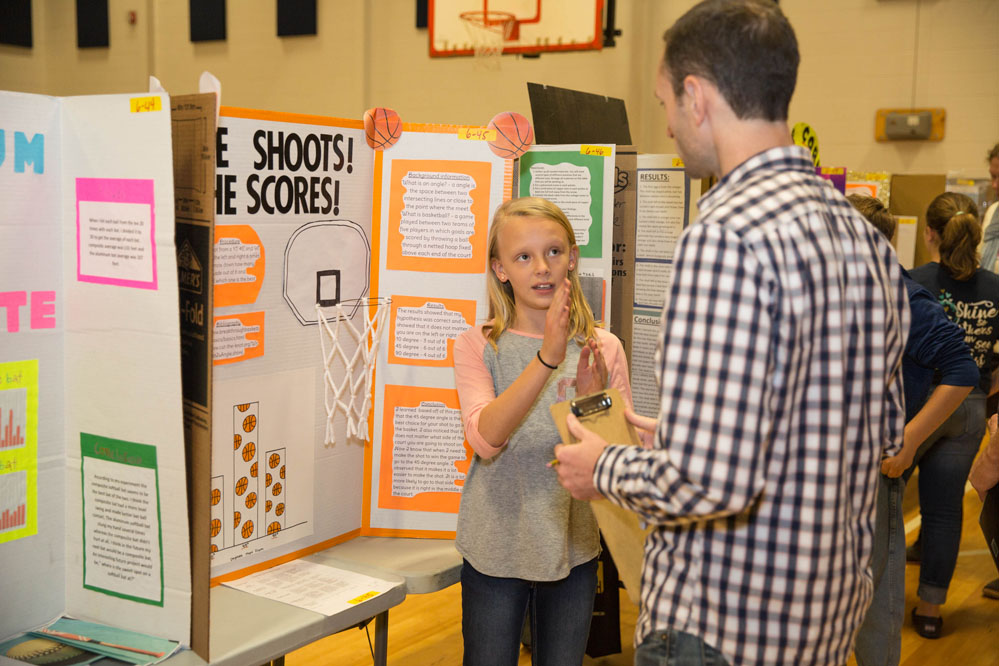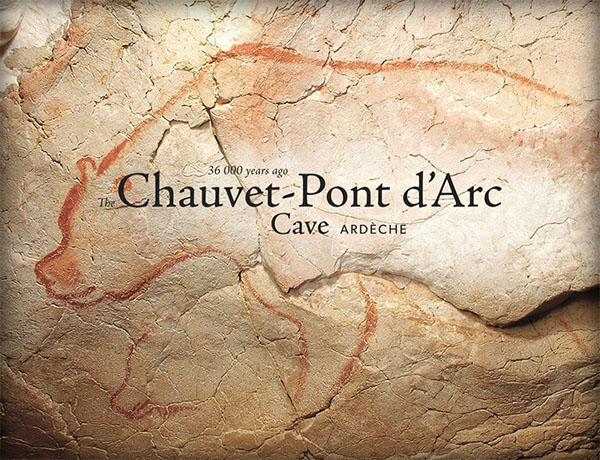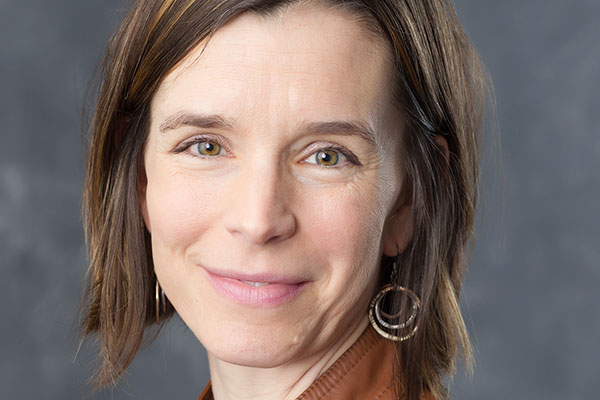Last semester, faculty and students in STEM departments of Appalachian State University’s College of Arts and Sciences engaged with fourth- through sixth-grade students during “Creative Leaders Night” at Blue Ridge Elementary School (BRES) in Ashe County.
Seven faculty members within Appalachian’s College of Arts and Sciences judged more than 150 science fair projects completed by fourth-, fifth- and sixth-grade BRES students.
One of the seven, anthropology professor Dr. Dana Powell, who has children in Ashe County Schools, said she would like to see stronger connections between the university’s STEM and arts faculty with the surrounding rural public schools.
After the judging was completed, a “Science Night” was hosted at BRES with parents and families in attendance. Each grade showcased a different project with a scientific theme — from life cycle projects, to animal habitats, to skeletons.
French Ministry of Culture and Communication
The featured exhibit was a Paleolithic cave art project created in an enclosed hallway adjoining the BRES gymnasium.
BRES art teacher and Appalachian alumna Elizabeth Lauer ’13 introduced elementary students to a unit focusing on the remarkable visual arts from the Paleolithic era. Students learned about the prehistoric artwork — including handprints, animals and hunting scenes — found in the Chauvet-Pont d'Arc Cave, or Chauvet Cave, located near the commune of Vallon-Pont-d’arc in the Ardèche region of southern France. The cave was discovered within a limestone plateau in 1994 by Jean-Marie Chauvet, Christian Hillaire and Eliette Brunel Deschamps. According to the French Republic’s Ministry of Culture and Communication, the Chauvet Cave is one of the oldest Paleolithic caves in the world, with artwork that dates back 36,000 years ago.
French Ministry of Culture and Communication
Catherine Herring and Taylor Reynolds, senior anthropology majors at Appalachian, and Matt LeBlanc, senior art education (K-12) major at Appalachian, assisted with the project. LeBlanc completed his student teaching placement with Lauer and her class at BRES in December 2017, and Herring and Reynolds — who both studied Paleolithic cave art in a seminar taught by Appalachian anthropology professor Dr. Larry Kimball — helped to educate BRES students and their families on artwork of the Paleolithic era.
Appalachian faculty members who participated in “Creative Leaders Night” at BRES were Dr. Dana Powell, assistant professor in Appalachian’s Department of Anthropology; Dr. Tonya S. Coffey, professor in Appalachian’s Department of Physics and Astronomy; Dr. Jamie S. Levine, assistant professor in Appalachian’s Department of Geological and Environmental Sciences; Dr. Michael Madritch, associate professor and assistant chair in Appalachian’s Department of Biology; Dr. Bob Swarthout, assistant professor in Appalachian’s Department of Chemistry with affiliate status in the Department of Geological and Environmental Sciences; and Dr. Saskia van de Gevel, associate professor in Appalachian’s Department of Geography and Planning.
About the College of Arts and Sciences
The College of Arts and Sciences (CAS) at Appalachian State University is home to 17 academic departments, two centers and one residential college. These units span the humanities and the social, mathematical and natural sciences. CAS aims to develop a distinctive identity built upon our university's strengths, traditions and locations. The college’s values lie not only in service to the university and local community, but through inspiring, training, educating and sustaining the development of its students as global citizens. More than 6,800 student majors are enrolled in the college. As the college is also largely responsible for implementing App State’s general education curriculum, it is heavily involved in the education of all students at the university, including those pursuing majors in other colleges. Learn more at https://cas.appstate.edu.
About the Department of Anthropology
The Department of Anthropology offers a comparative and holistic approach to the study of the human experience. The anthropological perspective provides a broad understanding of the origins as well as the meaning of physical and cultural diversity in the world — past, present and future. Learn more at https://anthro.appstate.edu.
About the Department of Physics and Astronomy
The Department of Physics and Astronomy’s curriculum has an applied nature that includes a core of fundamental physics courses and laboratory experiences. The department prepares graduates for a variety of scientific, teaching or engineering professions, as well as future educational endeavors. Learn more at https://physics.appstate.edu.
About the Department of Geological and Environmental Sciences
Located in Western North Carolina, Appalachian State University provides the perfect setting to study geological and environmental sciences. The Department of Geological and Environmental Sciences provides students with a solid foundation on which to prepare for graduate school or build successful careers as scientists, consultants and secondary education teachers. The department offers six degree options in geology and two degree options in environmental science. Learn more at https://earth.appstate.edu.
About the Department of Biology
The Department of Biology is a community of teacher-scholars, with faculty representing the full breadth of biological specializations — from molecular genetics to landscape/ecosystem ecology. The department seeks to produce graduates with sound scientific knowledge, the skills to create new knowledge, and the excitement and appreciation of scientific discovery. Learn more at https://biology.appstate.edu.
About the A.R. Smith Department of Chemistry and Fermentation Sciences
The A.R. Smith Department of Chemistry and Fermentation Sciences offers a Bachelor of Arts in chemistry, a Bachelor of Science in chemistry with eight different concentrations and an interdisciplinary Bachelor of Science degree in fermentation sciences. The department’s programs prepare students to attend graduate and professional schools, as well as for employment in the pharmaceutical and fermentation industries and other business sectors. Learn more at https://dcfs.appstate.edu.
About the Department of Geography and Planning
The Department of Geography and Planning promotes the understanding of the spatial dimensions of human behavior within the physical and cultural systems of the earth, and the role of planning in achieving improvement in those systems. The department offers degrees in geography and in community and regional planning. Learn more at https://geo.appstate.edu.
About Appalachian State University
As a premier public institution, Appalachian State University prepares students to lead purposeful lives. App State is one of 17 campuses in the University of North Carolina System, with a national reputation for innovative teaching and opening access to a high-quality, cost-effective education. The university enrolls more than 21,000 students, has a low student-to-faculty ratio and offers more than 150 undergraduate and 80 graduate majors at its Boone and Hickory campuses and through App State Online. Learn more at https://www.appstate.edu.
What do you think?
Share your feedback on this story.
